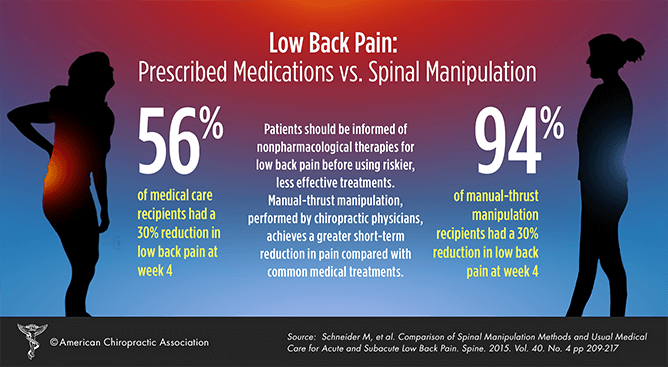Nutrition'S Effect On Pain In The Back Alleviation: Dietary Choices To Accept And Those To Steer Clear Of
Nutrition'S Effect On Pain In The Back Alleviation: Dietary Choices To Accept And Those To Steer Clear Of
Blog Article
read this -Whitley Jordan
When it involves handling your back pain, the food options you make can significantly impact exactly how you really feel on a daily basis. Visualize being able to reduce your pain merely by adjusting what you consume. By comprehending the role of nutrition in back pain monitoring and recognizing which foods to include or stay away from, you can take aggressive steps in the direction of a much healthier and much more comfy lifestyle. The link in between nourishment and back health is much more profound than you may understand-- let's discover how particular foods can either soothe or exacerbate your pain in the back.
Significance of Nourishment in Pain In The Back
Nutrition plays an important function in managing pain in the back. Your diet can substantially impact inflammation levels and overall pain degrees in your back. Taking in a well balanced diet plan abundant in nutrients like vitamins D and K, calcium, magnesium, and omega-3 fatty acids can help reduce inflammation and reinforce bones, which are crucial for back wellness.
In addition, keeping a healthy and balanced weight through correct nourishment can minimize stress and anxiety on your back, decreasing the risk of pain in the back.
Furthermore, certain nutrients like antioxidants discovered in fruits and vegetables can help fight oxidative stress and promote recovery in the body, consisting of the back muscles and spinal column.
On the other hand, consuming too much amounts of processed foods, sugary beverages, and unhealthy fats can add to inflammation and weight gain, intensifying back pain.
Foods to Eat for Back Health And Wellness
To sustain a healthy back, integrating nutrient-rich foods into your daily dishes is crucial. Consisting of migraine cure manhattan in anti-oxidants like berries, spinach, and kale can help reduce swelling in your back, alleviating pain and discomfort. Omega-3 fats discovered in fatty fish such as salmon and mackerel have anti-inflammatory residential or commercial properties that can benefit your back health.
In addition, eating nuts and seeds like almonds, walnuts, and chia seeds provides necessary nutrients like magnesium and vitamin E, which sustain muscular tissue feature and minimize oxidative stress and anxiety. Incorporating lean healthy proteins such as chicken, turkey, and tofu can help in muscle repair work and upkeep, promoting a strong back.
Don't neglect to include dairy or strengthened plant-based choices for calcium to support bone wellness. Lastly, hydrate with plenty of water to keep your spinal discs moisturized and functioning optimally. By including best acupuncture in dc -dense foods in your diet regimen, you can nourish your back and assistance general spine health and wellness.
Foods to Prevent for Pain In The Back
Choose avoiding refined foods high in sugarcoated and trans fats when seeking remedy for pain in the back. These types of foods can contribute to swelling in the body, which might intensify neck and back pain. Say no to sugary treats like candy, breads, and sugary drinks, as well as fast food items like burgers, fries, and fried chicken that are often packed with trans fats.
Furthermore, steer clear of foods consisting of high levels of refined carbohydrates, such as white bread, pasta, and breads, as they can spike blood sugar level levels and potentially aggravate swelling in the body.
It's likewise a good idea to limit your intake of foods high in saturated fats, like red meat and full-fat dairy items, as they can add to swelling. Processed foods like delicatessens meats, chips, and packaged snacks are commonly high in hydrogenated fats and must be consumed in small amounts.
Conclusion
Finally, paying attention to your diet plan and making smart food options can have a significant impact on taking care of pain in the back. By incorporating nutrient-rich foods like berries, fatty fish, nuts, and lean healthy proteins, and avoiding refined and sugary things, you can help reduce swelling and support in general back wellness. Keep in mind, what you eat plays a critical function in just how you really feel, so ensure to prioritize your nourishment for a healthier back.
